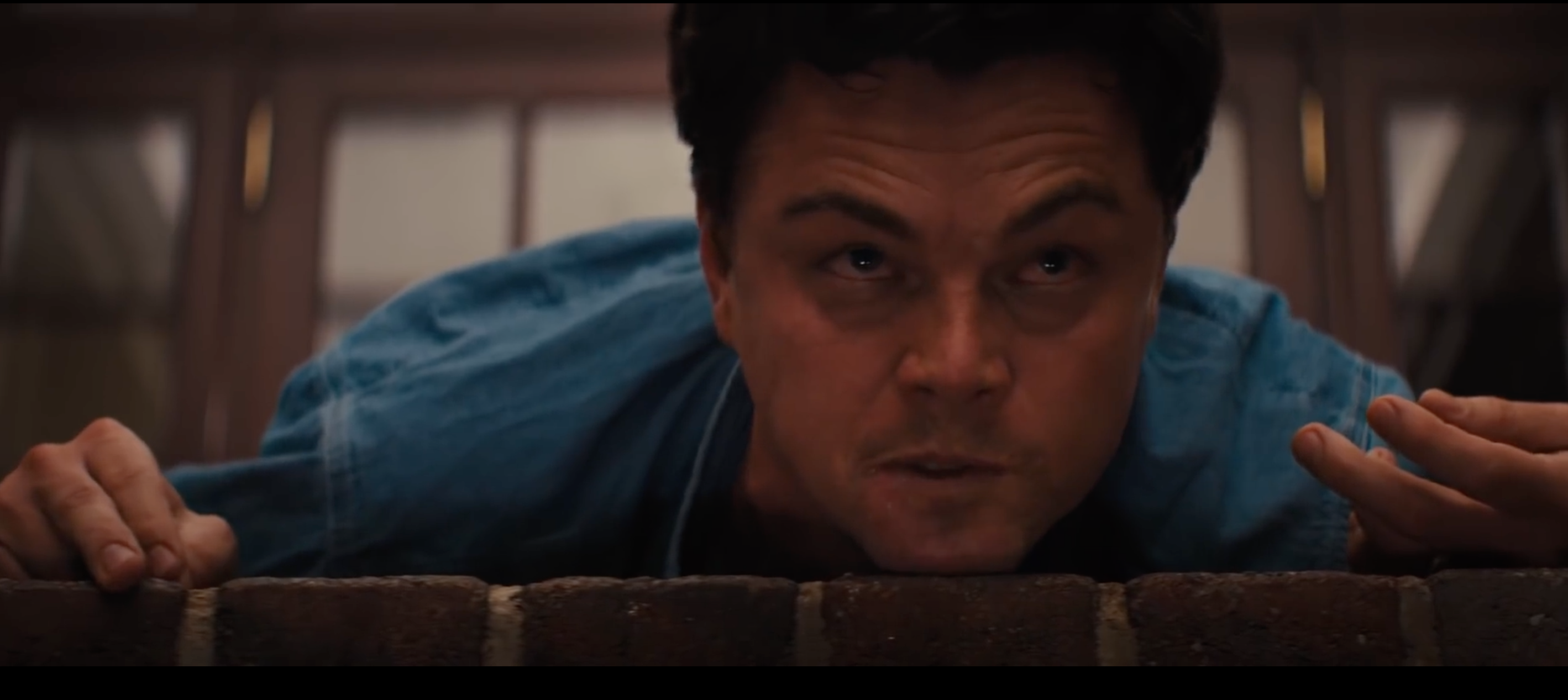
Scene: Quaaludes
It’s difficult not to lapse into hagiography when talking about Scorsese so I will simply say this and attempt to reign in the fawning as best I can: As much as anyone in the medium’s history he understands that the power of film isn’t in the text. It’s not in constructing an argument like an essay or a speech. It's in the images.
Like all of Scorsese’s period pieces, The Wolf of Wall Street covers mountains of information in its headlong dash through the years, but what makes these films great are the moments when they distill all that material into a memorable frame. The technical gambling know-how makes you buy into the world of Casino, but it’s an overhead shot of a reckless Sharon Stone making it rain chips at the craps table that leaves a mark on the audience...
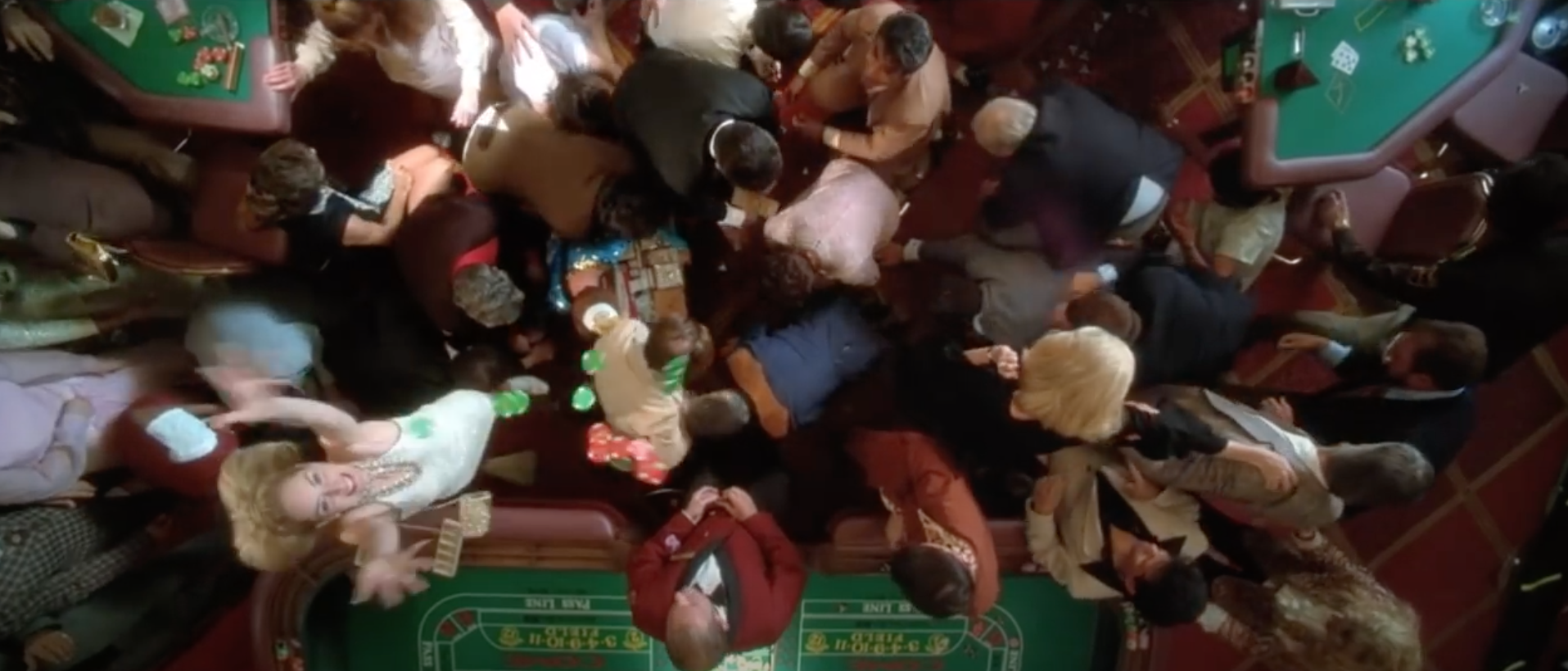
So what images does The Wolf of Wall Street leave you with?
Well, this one should bubble to the surface whenever someone says the problem with Wall Street is over-regulation:
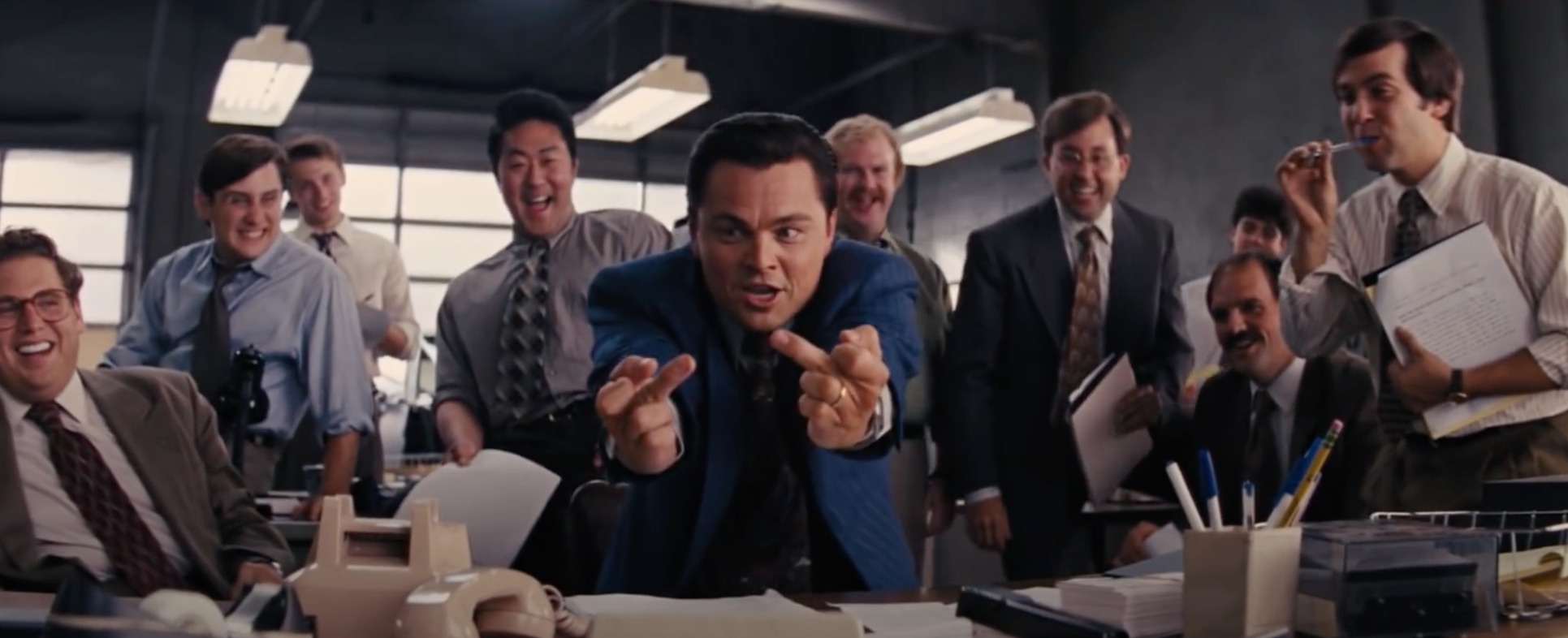
Then there’s this which sums up the mindset financial meltdowns are made of:
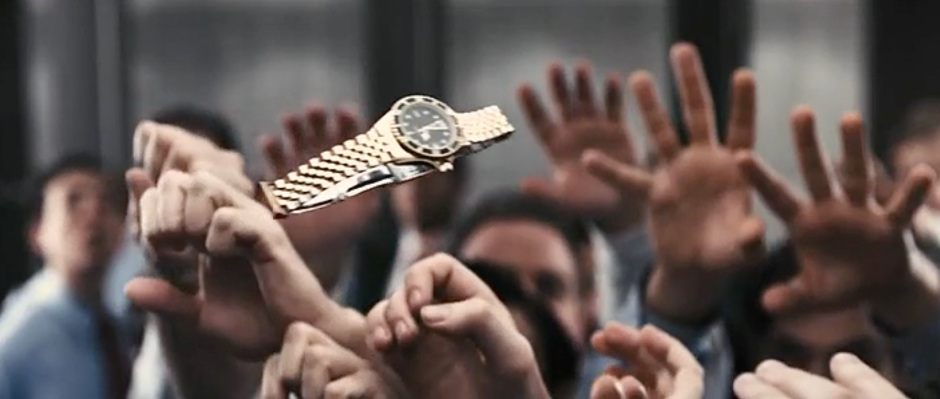
But for my money the image that most captures the heart and soul of Wolf of Wall Street is this one:
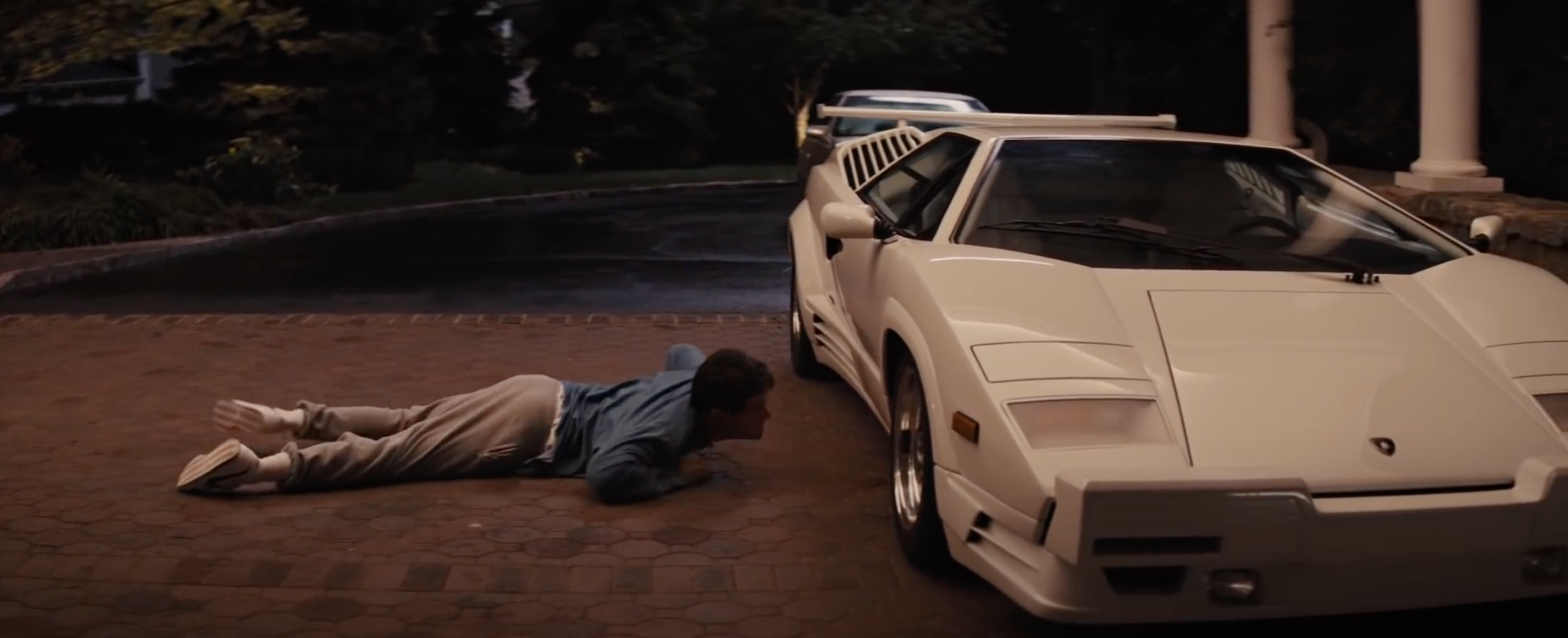
I truly believe five minutes of a spasmodic, drooling Leonard DiCaprio writhing and dragging his way to his luxury car is more effective than five hours of anti Wall Street documentaries bulging with charts and doomsayer talking heads.
An insidious problem with films like Wall Street or Margin Call (which is excellent, don’t misunderstand) is that even as they build a damning case against their subjects’ behavior they can’t help but make a case for their competence. Gordon Gekko might be utterly without conscience or scruples, but he’s not a maniac. He is one of the “adults in the room”. He’s going to twist the system to his advantage, sure, but he’s not going to burn it to the ground.
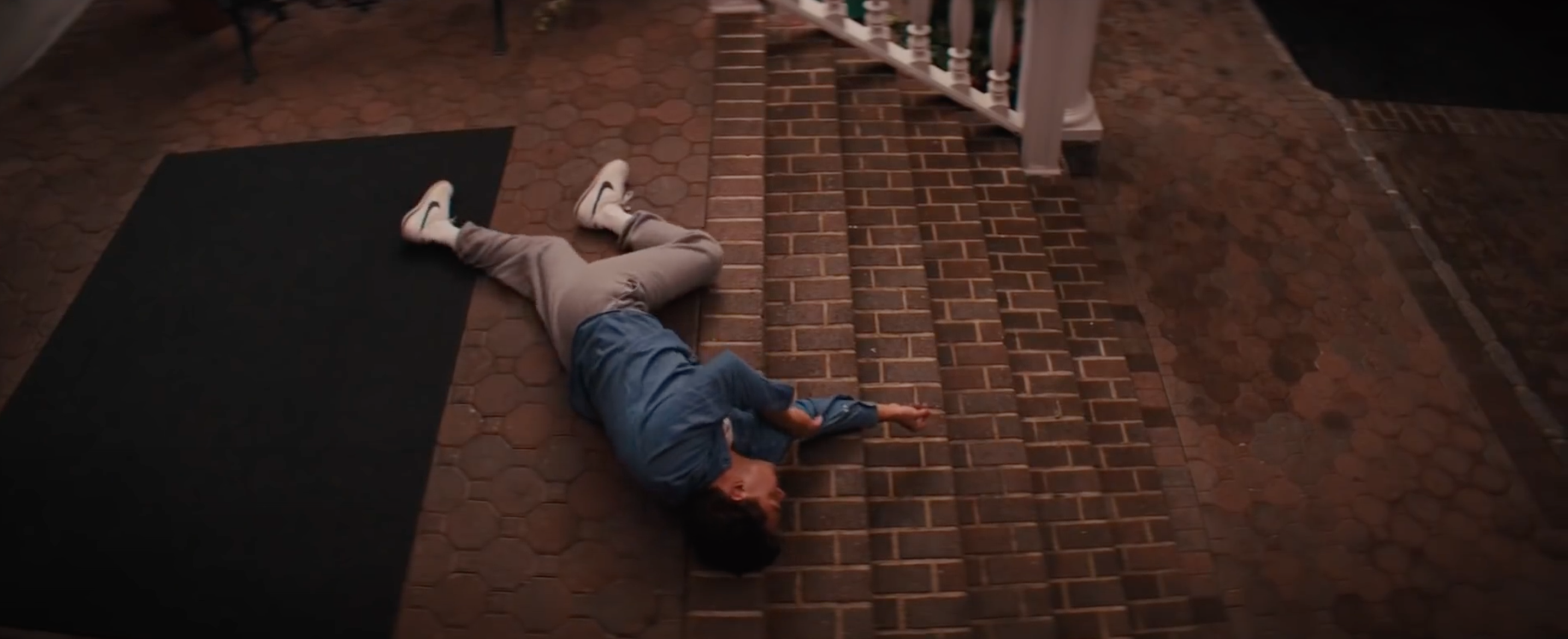
Not so with Wolf. You watch financial hotshot Jordan Belfort wasted beyond all motor function, hurling himself down a flight of stairs, and one can’t help but wonder how the Stock Exchange ends a single business day without crumbling into the sea.
I’ve seen interviews with Michael Douglas where he is surprised anyone regards Wall Street’s Gordon Gekko as a role model. I’m baffled how he can be baffled. Gekko draws worshippers because the visual that lasts in the viewer’s mind is that of a colossus standing before a rapt crowd, a beautiful woman at the end of one arm, a microphone the other, and both arms clad in a suit that costs more than your first year of college. Gekko gets his comeuppance at the end, but those are the vegetables one eats in order to assuage the guilt of indulging in all that sweet, sweet power fantasy. Audiences never have any difficulty spotting them and leaving them on the plate.
Wolf of Wall Street doesn’t bother with the vegetables. It’s all dessert. No pretending sin can't be fun and that temptation isn’t tempting. Which is not to say the director and writer Terence Winter ignore Belfort’s flaws - he is shown punching his wife in front of his crying child, among the many crimes. They are just acutely aware that the wealth porn on display supersedes any condemnation they could tack on. This dynamic even plays out in the film when a journalist exposes Belfort’s shady practices and the only consequence is a waiting room clogged with job applicants.
Nobody is going to mistake Scorsese for Mel Brooks, but he knows how to weaponize comedy much like the director of Blazing Saddles. The quaalude sequence is to Reaganomics what Springtime for Hitler is to Triumph of the Will. You can question the taste and the intent all day long but with both there is a level of grotesquery on display that cannot be defused, a buffoonishness that cuts clean through any power the subject holds.
I’ve noticed some comedies will turn around and shame the viewer for having fun in the film’s closing minutes in a disingenuous play to keep the filmmaker’s hands clean. Wolf doesn’t pull this stunt. It owns its laughs. I don't think I've heard a theater rock with laughter as hard since this scene landed back in 2013. But like the lemon ludes that turn Belfort into a flailing infant, Wolf has a fuse. The full effect might not hit until after you're done laughing and home watching the evening news, when you realize Wolf’s absurdities are our reality.
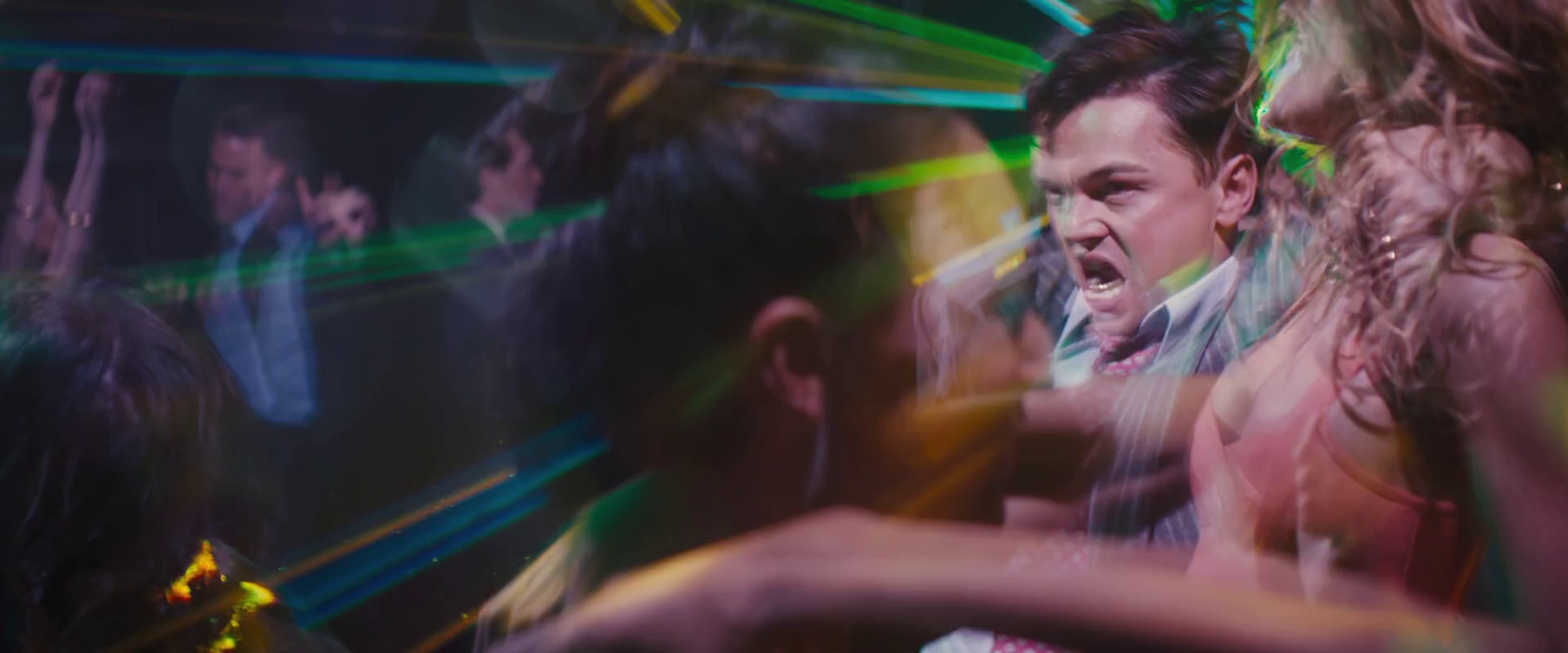
Follow Michael on Twitter and Letterboxd. More episodes of The New Classics.